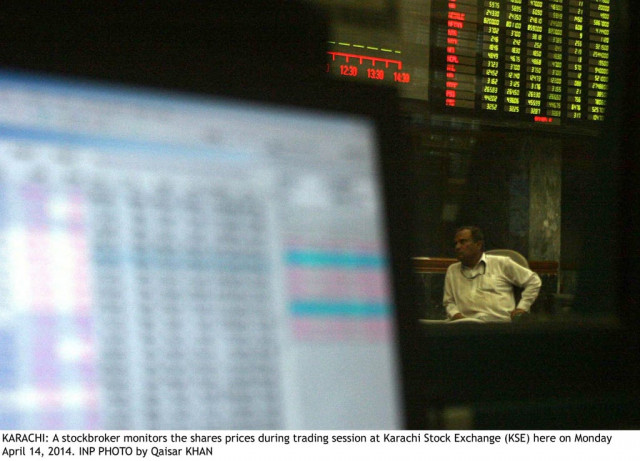Govt may introduce 5% tax on bonus shares
Proposal could turn out to be country’s largest revenue generator.

Massive impact: Rs1.5tr was total value of bonus shares paid by companies in Pakistan to shareholders last year. Keeping the figure in mind, the govt can raise Rs57b in revenue by introducing 5% tax on bonus shares. PHOTO: INP/FILE
The government is likely to bring as much as Rs1.5 trillion in income under the tax net in the new budget by introducing 5% tax on bonus shares which shareholders receive from companies. The move could yield about Rs75 billion in taxes, making it the biggest revenue generator in the country.
Taxing bonus shares could be made part of proposals which will be placed before parliament, finance ministry sources said. The tax will be charged on the market value of a share instead of its face value in order to capture real gains, they said.
Profitable companies pay their shareholders in two ways; either in the shape of a cash dividend or – where they don’t want to pay cash – by giving extra units of share, known as bonus shares. While the government charges 10% tax on dividends that a person receives from a company, there is no tax on bonus shares at the moment.
The total value of bonus shares paid by companies in Pakistan last year amounts to Rs1.5 trillion. With this figure in mind, the government can easily raise Rs75 billion in the next fiscal year, according to the sources.
In order to camouflage its real impact, however, the government is considering showing only Rs20 billion to Rs25 billion income from this account, the sources said. On the basis of reduced projections, the government has finalised around Rs110 billion new income tax measures for the next fiscal.

Finance ministry sources said it is not necessary that companies will pay bonus shares amounting to Rs1.5 trillion in the next fiscal year too. To remain on the safe side, the government is considering counting the combined value of shares to Rs400 billion, they added.
By amending relevant laws, the Federal Board of Revenue (FBR) had excluded the bonus income from the definition of income. It will also have to amend the relevant clause of the Income Tax Ordinance to revise the definition of income and bring bonus shares in its ambit, tax experts said.
The loophole has been fully exploited by big firms – particularly banks, mutual funds and family-owned businesses.
“A bonus share means the recipient is not receiving income in cash, therefore there is no justification to charge income that remains on papers,” said Dr Ikramul Haq, a tax lawyer of international repute. He said the government should instead bind companies to pay their shareholders cash dividends to a certain proportion.
Dr Haq said FBR was not fully utilising the anti-avoidance tools it has in its hands. Chapter VIII of the Income Tax Ordinance gives FBR vast powers to check tax avoidance by corporations.
Meanwhile, sources said Finance Minister Ishaq Dar has already briefed Prime Minister Nawaz Sharif about the proposal and has reportedly obtained his go-ahead. They added that the premier also endorsed the proposal to levy withholding tax on the purchase of properties. The Finance Minister had recommended a proposal to levy 1% tax on those people who are tax compliant and 2% on non-compliant at the time of purchase of property.
The government, however, has dropped the proposal of acquiring the right to buy a property at a rate over and above 20% declared in the land transfer deed, the sources said. India is following a similar model to discourage tax evasion in real estate sector.
Instead, the government has decided to take up the matter with provinces and will urge the federating units to revise the official rates that become minimum base of value of the property, they said. These rates are at a dismally low level.
Published in The Express Tribune, May 31st, 2014.



















COMMENTS
Comments are moderated and generally will be posted if they are on-topic and not abusive.
For more information, please see our Comments FAQ